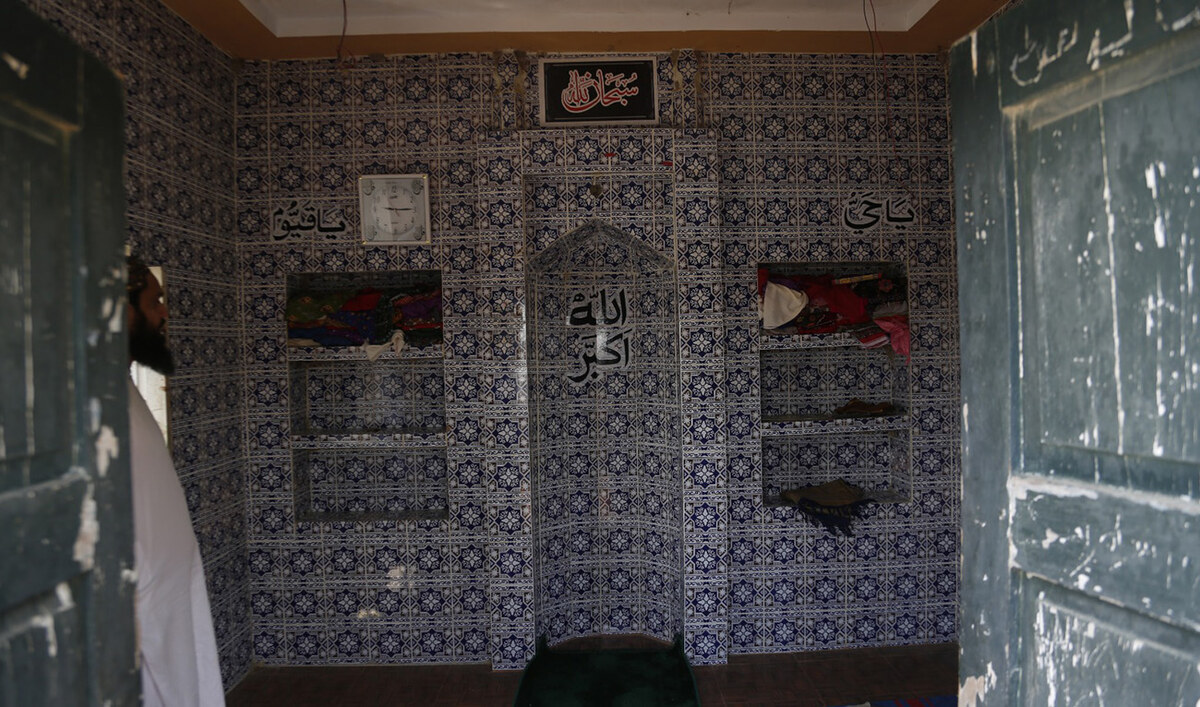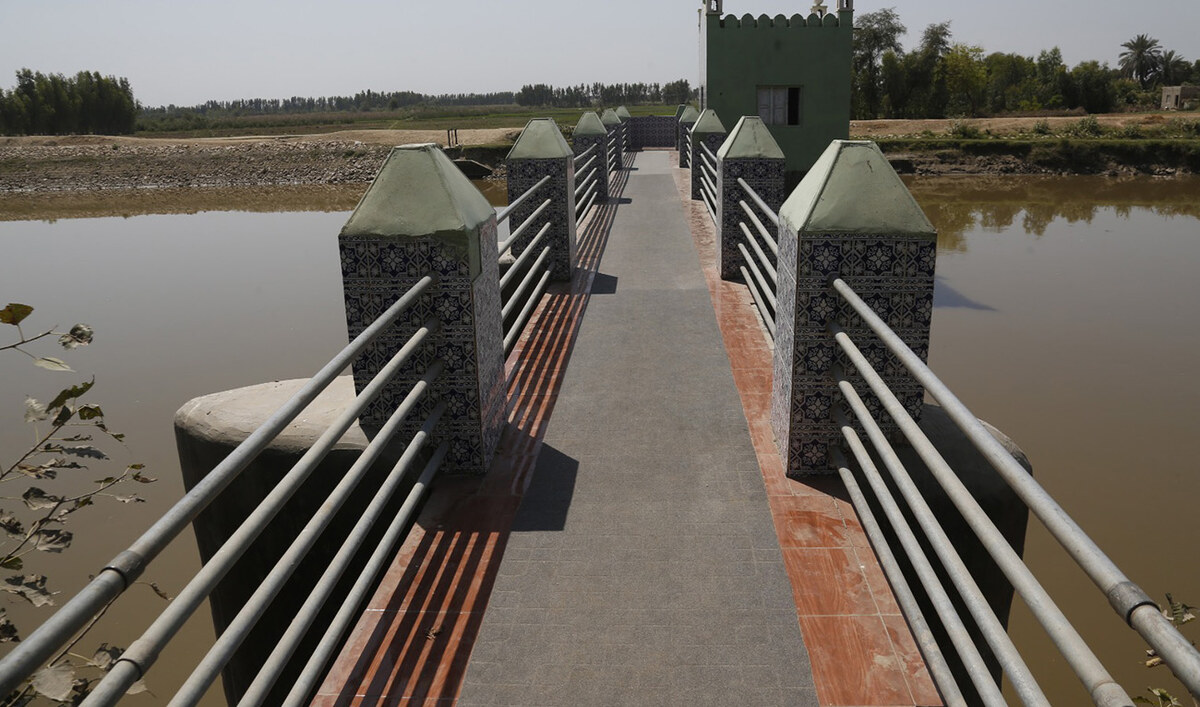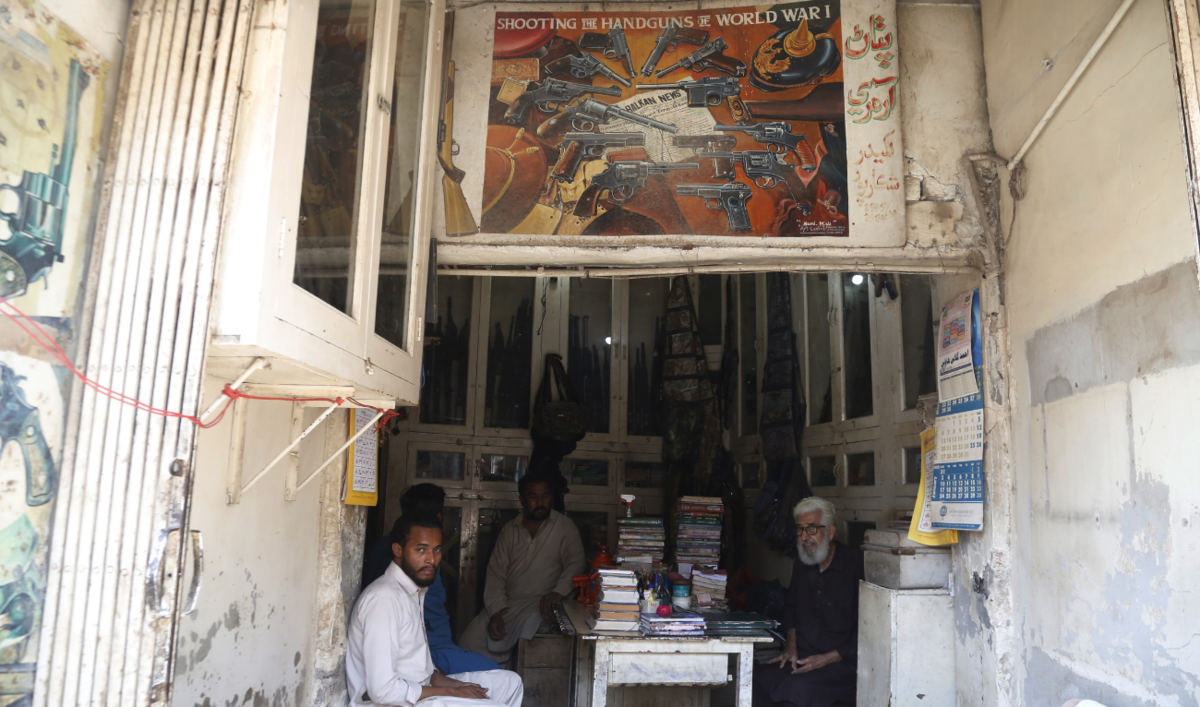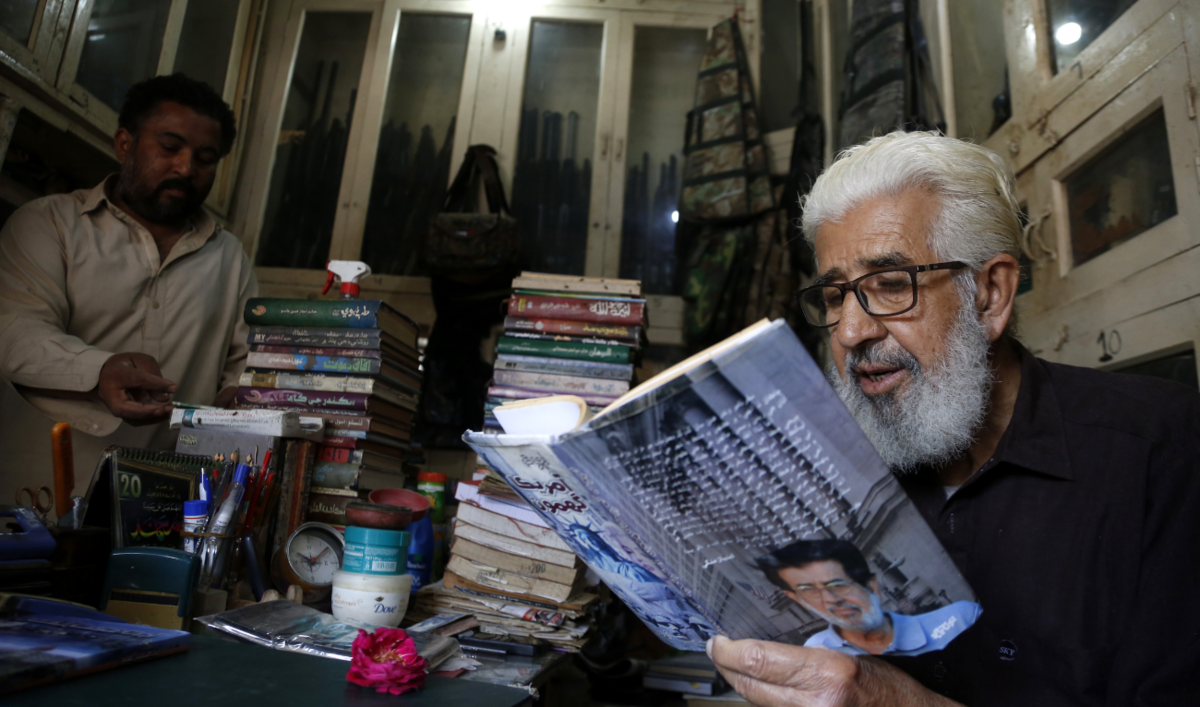ISLAMABAD: Business leaders in Pakistan’s southern port city of Karachi will soon launch a new airline inspired by the success of Air Sial, which was established by their counterparts in Sialkot, a Pakistani city renowned for its cottage industries, according to a former leader of the Association of Builders and Developers of Pakistan on Wednesday.
The development comes as Pakistan witnesses the rise of private airlines amid the financial and administrative troubles faced by its national carrier, Pakistan International Airlines (PIA), which the government is working to privatize.
Hanif Gohar, who until recently was the association’s chairman, said the idea resonated with Karachi’s business community when he shared it following the launch of Air Sial.
“When I discussed the idea of an airline with Air Vice Marshal Imran Qadir, the recently retired Southern Commander of the Pakistan Air Force, he offered his expertise,” he told Arab News. “Subsequently, I presented it to the business community, which also supported it.”
Air Sial was launched with contributions of Rs10 million ($35,900) each from 300 businessmen, raising a total of Rs3 billion ($10.8 million) before its inauguration and the launch of its first domestic flight in December 2020. The airline began international operations in March 2023 with a flight to Jeddah, Saudi Arabia.
The proposed carrier, Air Karachi, plans to pool Rs50 million ($179,502) from each of its 100 shareholders, totaling Rs5 billion ($18 million).
“The response was so enthusiastic that some business families proposed multiple shareholders,” Gohar said.
He added that the process of launching the airline has already begun.
“We have registered Air Karachi with the Securities and Exchange Commission of Pakistan and completed other formalities,” he said. “Once the government issues the license, which is expected soon, we will acquire three aircraft to launch domestic flights.”
Gohar further said that after the mandatory one year of domestic operations, the airline will expand its fleet to seven and begin international flights to the Middle East.a
He informed that Air Vice Marshal Qadir had been appointed the chief operating officer of Air Karachi, while a team of retired Air Force officials with extensive aviation experience has been assembled to support the initiative.
Notable shareholders in the venture include Pakistani business tycoons Aqeel Karim Dhedhi, Arif Habib, S.M. Tanveer, Bashir Jan Muhammad, Khalid Tawab, Zubair Tufail and Hamza Tabani.
The idea of a Karachi-based airline gained attention earlier this month after former Prime Minister Nawaz Sharif advised his daughter and Punjab Chief Minister Maryam Nawaz to acquire PIA and rename it Air Punjab.
Following offers from the Punjab and Khyber Pakhtunkhwa governments to purchase PIA, Sindh Governor Kamran Tessori revealed that Karachi’s traders were also interested in acquiring the national airline.
“Karachi’s businesspersons are constantly contacting me to talk about the airline’s matters,” Tessori wrote on the social media platform X on Monday. “Karachi’s businesspersons want the PIA to be given to them for a year, and they are also interested in starting a new airline.”
Karachi business leaders plan new airline amid rise of private operations in Pakistan
https://arab.news/w6u8h
Karachi business leaders plan new airline amid rise of private operations in Pakistan

- Air Karachi, inspired by Sialkot’s Air Sial, aims to raise Rs5 billion from 100 shareholders
- The move follows PIA’s financial struggles amid government’s privatization efforts
Inside National Library’s digitization project to preserve Pakistan’s literary heritage

- Library has digitized over 5.4 million pages, scanning about 15,000 pages daily between 2018 to 2021
- Top official says greater number of scanners, more funds can further enhance digitization capacity
ISLAMABAD: For staff at Pakistan’s leading reference and research library, the biggest challenge is handling an overwhelming volume of data and lack of funds, the facility’s director general said this week, detailing a digitization campaign launched nearly eight years ago to preserve the country’s literary and journalistic heritage.
Established in 1951 in the federal capital of Islamabad, the National Library is the country’s largest repository of printed material and serves as the official legal depository for a variety of publications.
According to Director General Rana Javed Iqbal, the library’s main objective is to comply with the Copyright Ordinance of 1968, which mandates the preservation of “the best copy” of all publications in Pakistan, including newspapers and periodicals.
The ordinance is a legal framework designed to protect the rights of creators and authors over their original works. One of its sections mandates that a copy of every published work produced in the country, such as books and newspapers, be deposited with the library for preservation.
“In 2018, a decision was made to digitize 16 major newspapers covering the period from 1968 to 2015,” Iqbal told Arab News. “We have digitized over 5.4 million pages in Urdu and English, scanning approximately 15,000 pages daily from 2018 to 2021.”
One of the biggest challenges in the endeavor was “handling the sheer volume of data,” with the library receiving around 300-350 newspapers daily in various languages, a problem exacerbated by financial constraints.
The library is now developing Optical Character Recognition (OCR) capabilities in both English and Urdu, a technology that converts scanned text into machine-readable format, enabling efficient keyword and title searches for easier access to digitized records.
The primary objective of the digitization exercise is to make access to information more convenient for students and scholars, eliminating the need for manual searches and enabling users to retrieve information within minutes on their desktops.
The National Library also actively collaborates with government departments to prevent duplication of digitization efforts, ensuring a more streamlined and efficient approach to preserving Pakistan’s printed heritage.
“Our goal is to digitize all magazines and newspapers under copyright,” Iqbal said. “Increasing the number of scanners would further enhance our capacity.
“Digitizing is an ongoing process,” he added. “We continue to receive a large volume of newspapers, and we are working on digitizing publications from 2016 onward.”
The library initially outsourced the digitization process, but later decided to bring it in-house to reduce costs and maintain efficiency by acquiring its own equipment and leveraging skilled staff.
Iqbal said 11,000 rare books and manuscripts had also been digitized, though access was only available on various campuses, with plans to upload them online.
“Our next major initiative involves digitizing 1,500 different magazines,” he said. “We have also undertaken the digitization of the Gazette of Pakistan from 1949 onward.”
Speaking to Arab News, Rana Asad Ullah Khan, a serving additional attorney general who was visiting the facility this week, praised the library management for preserving valuable written material to promote art, education and culture.
“I found a treasure of newspapers in this library which I couldn’t in Lahore,” said Khan, who is researching the history of the Lahore High Court Bar Association, which was founded in 1861.
Pakistani actor Fawad Khan’s Bollywood comeback film to release on May 9

- “Abir Gulaal” features prominent Indian actress Vaani Kapoor who plays lead role and Khan’s love interest
- Khan was last seen in a Bollywood flick in 2016 before unofficial ban on Pakistani artists by Indian producers
ISLAMABAD: Pakistani actor Fawad Khan will mark his Bollywood comeback with the upcoming film “Abir Gulaal” on May 9, as per a teaser of the flick released this week.
The movie features Indian actress Vaani Kapoor in the lead role alongside Khan. Abir Gulaal has been directed by filmmaker Aarti S. Bagdi and produced by “Indian Stories” and “A Richer Lens” in association with Aarjay Pictures.
Producers of the flick include Vivek B. Agrawal, who has been involved with stellar Indian hits such as “Queen,” “Udta Punjab,” “Sacred Games,” and Avantika Hari and Rakesh Sippy.
“The wait is over!” Kapoor wrote in an Instagram post alongside the teaser on April 1. “Bringing love back to the big screen with Abir Gulaal and Fawad Khan. See you in cinemas on 9th May!“
(please embed Vaani Kapoor Instagram post here)
The teaser of the movie features Khan sitting behind the steering wheel of a car, crooning an iconic Bollywood song with Kapoor in the passenger seat beside him while it rains outside.
“This heartwarming tale unfolds in the picturesque streets of London, weaving a love story filled with unexpected turns, tender moments, and pure magic,” the film’s synopsis states.
“Audiences can expect a delightful blend of laughter, tender moments, and the undeniable chemistry between Fawad Khan and Vaani Kapoor.”
Khan enjoys heartthrob status in both Pakistan and India. He has played the lead in Bollywood hits “Khoobsurat” (2014) and “Kapoor & Sons” (2016). He also starred in “Ms. Marvel” (2022) and “The Legend of Maula Jatt” (2022), Pakistan’s biggest hit of all time.
Khan’s impressive run in Bollywood came to a halt due to an unofficial ban on Pakistani artists by Indian producers in 2016 as tensions between both neighboring countries escalated. Pakistan has also banned the screening of Indian movies after ties with New Delhi reached a new low in 2019 over the disputed Kashmir region.
However, in 2023, the Bombay High Court dismissed a petition seeking to officially ban Pakistani artists from working in India.
“Arts, music, sports, culture, dance, and so on are the activities which rise above nationalities, cultures, and nations and truly bring about peace, tranquility, unity, and harmony in nation and between nations,” the court had said in its ruling.
The movie, however, has already earned the ire of India’s conservative politician Raj Thackeray.
A few hours after the teaser released, Thackeray’s Maharashtra Navnirman Sena (MNS) party opposed the film’s release in Maharashtra.
“We only learned about this film’s release today when the makers announced it,” MNS spokesperson Ameya Khopkar told Dainik Bhaskar, a Hindi-language newspaper, on Tuesday.
“But we are making it clear that we will not allow this film to release in Maharashtra because it features a Pakistani actor. Under no circumstances will we permit such films to be released in the state,” he added.
Previously, the Indian release of Khan’s Maula Jatt film was paused after a right-wing fringe group objected to it.
Amroti ‘Water’ Mosque: Century-old symbol of faith and resistance in southern Pakistan

- Mosque was built around 1890 under guidance of Syed Taj Mahmood Shah Amroti, first translator of Qur’an into Sindhi language
- Mosque’s location became problem when British wanted to built Sukkur Barrage but resistance by Amroti and followers forced retreat
SHIKARPUR, Sindh: Standing on seven pillars in the middle of the Kirthar Canal, a unique mosque in Pakistan’s southern Shikarpur district is more than just a place of worship — it is a symbol of defiance and resistance against British colonial rule.
With its whitewashed walls rising above the flowing waters, the Amroti Mosque’s architecture is as unique as its story.
The mosque was first constructed from mud, wood and palm tree trunks on a mound around 1890 under the guidance of scholar and educationalist Syed Taj Mahmood Shah Amroti, who was the first to translate the Holy Qur’an into the Sindhi landguage and provide detailed explanations of its teachings. For years, the mosque served as a place of workshop for the residents of Junejo village in Shikarpur until its location became an issue when the British colonial rulers of India decided to build the Sukkur Barrage and its canals, ordering the demolition of the masjid.
Historical accounts say Amroti sent over 20 letters to authorities asking to change the canal’s route but received no response and the British eventually issued a warrant for his arrest.
“In 1922, the British government started the Kirthar Canal project to irrigate uncultivated lands of Sindh and Balochistan [provinces],” Sayed Rushdullah Shah Amroti, the administrator of Amroti Mosque and the great grandson of Amroti, told Arab News.

“When Hazrat Amroti came to know that the British government wanted to demolish the mosque, he decided to camp here and offered stiff resistance to British authorities.”
When British officials arrived with machines to demolish the mosque, local villagers joined Amroti in a massive protest. In the end, the British agreed not to destroy the mosque and instead promised to strengthen its structure so that both the mosque and the canal could remain.
“The impact of the resistance was that the British government was forced to kneel down,” Sayed said. “They left the mosque as it was and made the canal around its four sides.”
The mosque in its present shape was subsequently built, serving as a reminder of the importance of both faith and rebellion as it stood amid the waters of the Kirthar Canal, which originates from the Indus River at Sukkur Barrage and became operational in 1932 as a vital watercourse for Balochistan, particularly districts like Jafarabad and Naseerabad.

“STRANGE SPIRITUAL STATE”
In the past, residents would use boats to reach Amroti Mosque for prayers but after independence from British rule in 1947 and the creation of the two separate nations of Pakistan and India, the government rebuilt a proper structure for the mosque, constructed a bridge for easier access and ensured that water continued to flow beneath it.
Though the small mosque only allows 10-12 people to pray at a time, it holds great cultural and spiritual value for the people of the area.
“We are very proud of the religious and Islamic achievements of our ancestors, and wherever we go in the world, the respect we receive because of our connection to Amroti Sharif is largely due to the role of this mosque,” Rushdullah said.
Nasim Bukhari, a local writer, described the mosque as a “great symbol of resistance in history.”

“And this has been the history of Sindh, that we have never accepted defeat. Even if we had to face defeat, we would die with our names still alive. We never ran away,” he said.
Amroti’s struggle was part of a larger resistance movement in Sindh, according to Bukhari.
“Syed Taj Mahmood Amroti fought against the British in his time and became a symbol of resistance. The people of that time, unarmed, fought with perseverance,” the author said, highlighting Amroti as an inspiration for others. One of his disciples, Syed Salah Aajiz Memon, later became the first Sindhi and Muslim figure against whom the British filed a case for rebellion.
“The name and deeds of our leader, Syed Taj Mahmood Amroti, have had their impact, but the resistance movement led by his followers and disciples also carries a remarkable legacy,” Bukhari said.

To date, the mosque continues to serve as a place of deep spirituality and worshippers describe a “profound sense of peace” at the place, especially when the water runs high and the mosque appears to be floating in the canal.
“While praying here, a strange spiritual state occurs,” Maulana Shahnawaz Baloch, the prayer leader at the mosque, told Arab News.
“At this time, the water level is low, yet there is still a spiritual atmosphere. When the water level is higher due to the season, a completely different spiritual experience takes place.”
Pakistan warns Afghan Citizen Card holders of legal action as expulsion deadline expires

- Pakistan issued a Mar. 31 deadline for ACC holders to return voluntarily to Afghanistan
- Since 2023, state-run media says Pakistan has deported around 886,000 Afghan nationals
ISLAMABAD: Pakistan’s state broadcaster on Wednesday warned Afghan Citizen Card holders and “illegal foreigners” of strict legal action as the deadline for them to return to their countries voluntarily expired this week.
Islamabad last month announced a deadline of Mar. 31 for Afghans in Pakistan holding ACCs, a certain immigration document, to leave the country. The move was part of Pakistan’s larger drive to expel what it says are illegal immigrants from the country.
Pakistani authorities maintain Afghan nationals have been involved in militant attacks and organized crime, accusations Kabul denies. Islamabad’s decision to hasten the expulsion of Afghans holding ACCs has coincided with the Eid Al-Fitr celebrations, casting a shadow over the religious holiday for thousands of Afghan families.
“Strict legal action will be initiated against the illegal foreigners and Afghan Citizen Card holders as the deadline given to them to leave the country has expired,” state broadcaster Radio Pakistan said.
It added that the process of repatriation of Afghan nationals to their country is continuing.
“As of now, the total number of returnees stands at around 886,000,” the state broadcaster said.
ACCs were issued by Pakistani authorities and are held by 800,000 Afghans, according to the United Nations. A government official told AFP on condition of anonymity that the Mar. 31 deadline has been extended until the beginning of next week due to Eid holidays. However, no official confirmation of the extension was announced.
More than 1.3 million Afghans who hold Proof of Registration (PoR) cards from the UN refugee agency, UNHCR, are also to be moved outside the capital Islamabad and the neighboring city of Rawalpindi.
The UN says nearly three million Afghans live in Pakistan, many having fled there over decades of war in their country and after the return of the Taliban to power in Afghanistan.
Pakistan kicked off its deportation drive in 2023 amid a surge in violence by armed groups like the Tehreek-e-Taliban Pakistan (TTP) and the Baloch Liberation Army (BLA), whose leaders Islamabad claims are based in Afghanistan, a charge rejected by the Taliban administration.
The move has further soured Islamabad’s ties with Kabul. Afghanistan’s Refugees Minister Mawlavi Abdul Kabir on Tuesday requested Pakistan to halt the deportations and allow Afghans to return to their country voluntarily.
“He emphasized the importance of humane treatment for refugees, especially in light of reports of mistreatment of Afghans by border nations, including instances where individuals holding legal visas were also deported,” Afghan state news agency Bakhtar said.
International rights groups have also urged Islamabad to halt the deportations, warning that some returning Afghans could face threats under Taliban rule.
Pakistan insists it is carrying out the deportation campaign in a humane manner, saying it respects the dignity of all Afghan nationals.
In Pakistan’s Shikarpur, an arms dealer by trade and storyteller at heart

- Agha Sanaullah Khan, 76, has sold weapons since 1090s at Pathan Armory in historic Shikarpur city
- He has authored four Sindhi language travelogues and collection of short stories called ‘Ghalti’, or ‘Mistake’
SHIKARPUR, Sindh: Agha Sanaullah Khan, a 76-year-old arms dealer, sat last month in front of piles of books, with assault rifles, pistols and other ammunition and weapons’ accessories stacked up around them at his shop in the southern Pakistani city of Shikarpur.
Is this a bookstore or an arms dealership?
Welcome to Pathan Armory near Lakhi Dar, one of the seven gates of the historic Shikarpur city, where Khan has been selling weapons for over three decades.

But his true passion lies somewhere else: in writing short stories and travelogues.
The septuagenarian, who has authored four Sindhi language travelogues, and a collection of short stories called ‘Ghalti’, or ‘Mistake,’ says customers who visit his armory are often surprised when they find him pouring over books.
“They come and say, ‘Weapons and books both?’,” Khan said, as he counted change for a customer. “What can I do? Whenever I get free, I read. One should read. Not just reading, I also write here, sir. I sit here and write. This is my nature.”
“Weapons are my business, my livelihood, and I earn from it. I support myself with it,” he explained. “Books are my passion.”
“PASSION FOR TRAVEL”
Khan, whose father was a bureaucrat, set up his armory in the early 1990s in Shikarpur where he lives with his wife while his children are settled in the United states.
The city, which from the 17th to 19th centuries used to be a vital trade hub connecting Central Asia and the Indian Sub-continent, is now plagued by a major crime problem, with several dacoit gangs operating in riverine areas of the district.
Nasir Aftab, Deputy Inspector General of Police (DIGP) Larkana Range, told Arab News the security situation in Shikarpur had improved due to ongoing armed operations against dacoits.

“The operation has weakened the organized criminal network, leading to a drastic improvement in security in the region,” Aftab said. “Public confidence has been restored, and the dacoits are finding it difficult to regroup. With continued law enforcement efforts, lasting peace and security in Shikarpur, Kashmore, and surrounding areas is becoming a reality.”
But for Khan, weapons and pistols were “a necessity now.”
“The law-and-order situation here is such that people are forced to keep guns. And it is allowed by the government, I have the license.”
The arms dealer’s heart, however, lies in storytelling and his passion for travel writing is inspired by a love for tourism.
In his books, he has documented his journeys from the bustling streets of India and the serene landscapes of Nepal to the vibrant markets of Thailand and sprawling cities of the United States.
“When I was born, I had a passion for tourism. When I became wise, I thought I should travel,” he said. “I came into the [arms] business but touring remained stuck in my mind.”
The septuagenarian says his travels to India with friends, which he has written about in his first travelogue, were particularly impactful, as he was able to reconnect with migrants from Shikarpur and experience their hospitality and shared history.
“I met with someone who had migrated from here, Guman Punjabi from Shikarpur. He served me greatly. I met many other migrants and they treated me well,” Khan recalled.
His fascination with America, where his two sons and two daughters live, has led him to write two travelogues while a third one is in the works.
“You can say that I have traveled all over the country, New York, Washington and all major cities of Florida state,” he said, adding that he considered America his second home, but chose life in his hometown of Shikarpur over procuring an American nationality.
Khan, who wants to inculcate a love for reading and writing in others, recently donated nearly 4,000 books to a local library on a friend’s request.
He now wishes to leave behind a legacy that is rooted in his passion for words.
“At present, people know me as an arms dealer,” said Khan as he polished an assault rifle, “but I want that a time comes when people know me more as a travelogue writer.”












